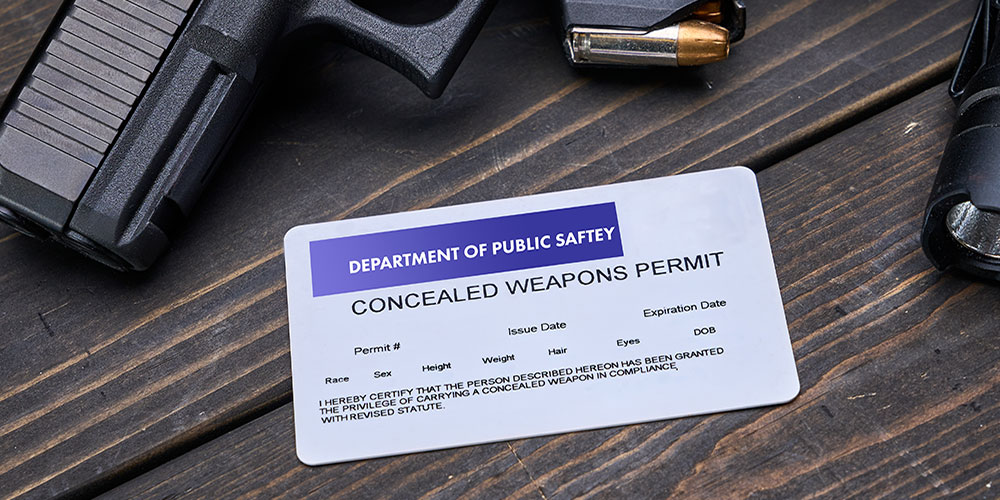Article update: West Virginia Governor Jim Justice signed the Campus Self-Defense Act into law on March 1, meaning people with concealed carry permits will soon be allowed to take firearms onto public college and university campuses.
“Proud day for me,” Justice said as he signed Senate Bill 10. He was surrounded by more than two dozen state lawmakers, members of the National Rifle Association, and the West Virginia Citizens Defense League, according to AP News.
In defense of the bill, Justice said guns have been brought onto state campuses even without the new law.
“For crying out loud, the doors are wide open,” he said. “This is just saying the law-abiding people have a right to be able to carry if they choose to do so. We just hope and pray that there’s never a problem. We can’t ensure in any way that there won’t be a problem.”
The bill bans the open carry of a firearm and allows college campuses to implement exceptions, such as banning guns in rooms where a student or employee disciplinary hearing is being held. Guns can also be restricted in specifically designated areas where patient care or mental health counseling is being provided, and schools will be allowed to regulate firearms in residence halls but not in common areas such as dining areas and study areas.
Additionally, the bill prohibits people from taking guns into areas with a capacity of more than 1,000 spectators, such as football stadiums, and on-campus daycare centers.
The law will take effect in July 2024.
If your campus will soon be required to allow concealed carry, here’s a resource with leading practices that will help maximize potential benefits while avoiding potential pitfalls.
CHARLESTON, W.V. — West Virginia Governor Jim Justice said he plans to sign into law a concealed campus carry bill passed by the House last Tuesday in an 84-14 vote.
Passed in January by the Senate in a 29-4 vote, the Campus Self-Defense Act (Senate Bill 10) will allow college students, staff, and visitors with valid concealed carry permits to have a pistol or revolver on a public campus.
Justice said he knows the bill is controversial but that he stands by the Second Amendment, particularly amid an increase in campus shootings, according to WVNews.
“When this bill comes to me, it won’t be with me but for a matter of seconds, because I’ll sign it,” he said. “It may very well be that we’ve got somebody on (a college) campus that has a firearm who, when something bad starts to happen, may save a bunch of lives. I really, truly believe that the people who have firearms and carry permits are law-abiding, good people with rock-solid credentials behind them.”
As the bill moved through the legislative process, the presidents of West Virginia State University and Marshall University, the state’s largest institutions of higher education, wrote a letter to lawmakers opposing the bill, AP News reports. The group said decisions on whether or not to allow guns on campus should be left to individual institutions to decide. West Virginia law currently allows public colleges and universities to prohibit guns on their campuses.
On Tuesday, Minority Leader Doug Skaff said lawmakers should be spending more time and resources on efforts that provide mental health support to university students. Legislation he has tried to introduce that addresses college student mental health “hasn’t seen the light of day,” he said.
“Just because we have a supermajority here, just because you can pass whatever you want, doesn’t mean you should,” Skaff continued.
Democratic Del. John Williams said people who carry guns on campus with good intentions could interfere with law enforcement response, and that a lot of training goes behind learning how to respond to and de-escalate a violent situation involving a deadly weapon — training most college students don’t have.
“A false assumption that I think we’re making is that every single one of these folks that’s going to be carrying a gun on campus is going to be Clint Eastwood, ready to fight,” he said.
Republican Del. Mike Honaker, who responded to the 2007 Virginia Tech shooting as a state trooper, supports the bill. At the House session, Honaker said he and other officers were responsible for notifying parents of students who were killed.
“Please hear me: Years ago, I sat on the foot of my bed with Windex and paper towels and I washed the blood of almost 30 kids off of my shoes because of an active shooter on a college campus,” he said. “I fear that if I do not support this legislation, and it happens again, washing their blood off my shoes will not compare to trying to wash the blood off of my hands.”
Honaker also said he understands the concerns of those opposed to the bill but that people should have the right to defend themselves.
Back in January during the Senate session, the bill’s lead sponsor, Republican Sen. Rupie Phillips, said allowing concealed carry would help address the issue of sexual assault on college campuses.
“I don’t want my daughter to have to face this — I don’t want your daughter, your granddaughters to ever have to face that,” he said. “That’s another reason that we need to get this through.”
If signed into law, Senate Bill 10 would go into effect in July 2024. Similar legislation has already passed in 11 other states, including Arkansas, Colorado, Georgia, Idaho, Kansas, and Oregon.













